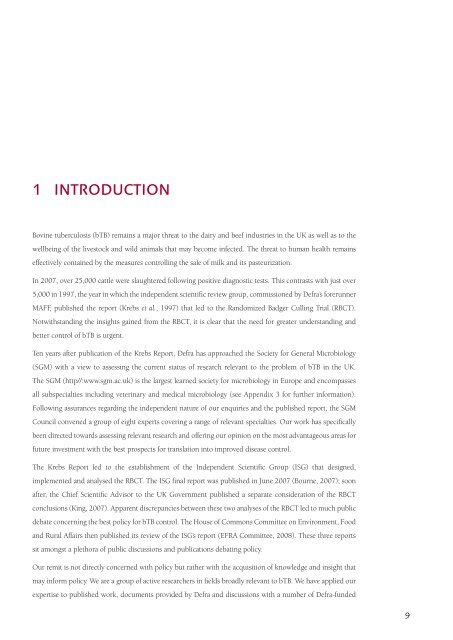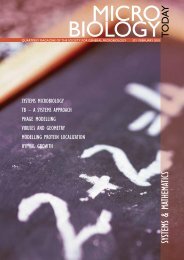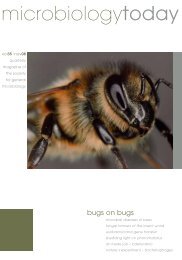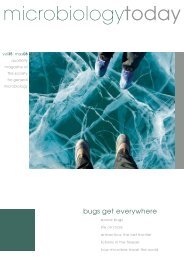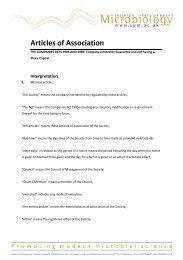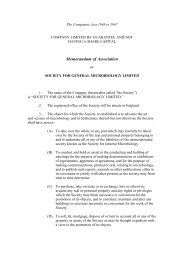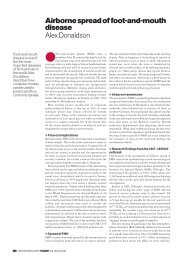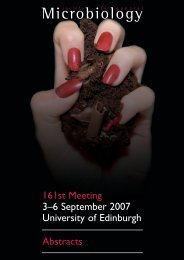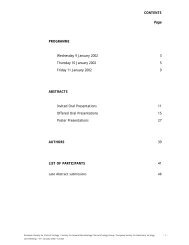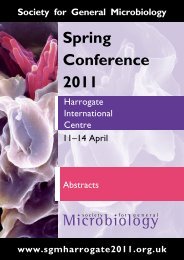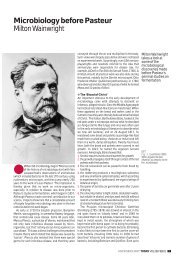final report - ARCHIVE: Defra
final report - ARCHIVE: Defra
final report - ARCHIVE: Defra
Create successful ePaper yourself
Turn your PDF publications into a flip-book with our unique Google optimized e-Paper software.
1 INTRODUCTION<br />
Bovine tuberculosis (bTB) remains a major threat to the dairy and beef industries in the UK as well as to the<br />
wellbeing of the livestock and wild animals that may become infected. The threat to human health remains<br />
effectively contained by the measures controlling the sale of milk and its pasteurization.<br />
In 2007, over 25,000 cattle were slaughtered following positive diagnostic tests. This contrasts with just over<br />
5,000 in 1997, the year in which the independent scientific review group, commissioned by <strong>Defra</strong>’s forerunner<br />
MAFF, published the <strong>report</strong> (Krebs et al., 1997) that led to the Randomized Badger Culling Trial (RBCT).<br />
Notwithstanding the insights gained from the RBCT, it is clear that the need for greater understanding and<br />
better control of bTB is urgent.<br />
Ten years after publication of the Krebs Report, <strong>Defra</strong> has approached the Society for General Microbiology<br />
(SGM) with a view to assessing the current status of research relevant to the problem of bTB in the UK.<br />
The SGM (http//:www.sgm.ac.uk) is the largest learned society for microbiology in Europe and encompasses<br />
all subspecialties including veterinary and medical microbiology (see Appendix 3 for further information).<br />
Following assurances regarding the independent nature of our enquiries and the published <strong>report</strong>, the SGM<br />
Council convened a group of eight experts covering a range of relevant specialties. Our work has specifically<br />
been directed towards assessing relevant research and offering our opinion on the most advantageous areas for<br />
future investment with the best prospects for translation into improved disease control.<br />
The Krebs Report led to the establishment of the Independent Scientific Group (ISG) that designed,<br />
implemented and analysed the RBCT. The ISG <strong>final</strong> <strong>report</strong> was published in June 2007 (Bourne, 2007); soon<br />
after, the Chief Scientific Advisor to the UK Government published a separate consideration of the RBCT<br />
conclusions (King, 2007). Apparent discrepancies between these two analyses of the RBCT led to much public<br />
debate concerning the best policy for bTB control. The House of Commons Committee on Environment, Food<br />
and Rural Affairs then published its review of the ISG’s <strong>report</strong> (EFRA Committee, 2008). These three <strong>report</strong>s<br />
sit amongst a plethora of public discussions and publications debating policy.<br />
Our remit is not directly concerned with policy but rather with the acquisition of knowledge and insight that<br />
may inform policy. We are a group of active researchers in fields broadly relevant to bTB. We have applied our<br />
expertise to published work, documents provided by <strong>Defra</strong> and discussions with a number of <strong>Defra</strong>-funded<br />
9


